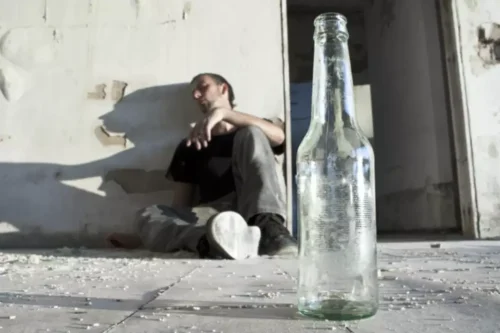
The damage chronic alcohol use creates doubles your risk of chronic kidney disease. This risk is five times higher if you smoke in addition to drinking. In the absence of ADH, segments of the kidney’s tubule system become impermeable to water, thus preventing it from being reabsorbed into the body. Under these conditions, the urine formed is dilute and electrolyte concentration in the blood simultaneously rises. If it is caught early, acute kidney injury can usually heal over time. If you have kidney disease that leads to kidney failure, you will need regular dialysis or a kidney transplant.

Alcohol and Acute Kidney Failure
In fact, about a quarter of drinkers reported they had done this on at least one day in the past year. “Binge” drinking has harmful effects on the kidney that can even lead to acute kidney failure. A sudden drop in kidney function is called acute kidney failure. This often goes away after a time, but it can occasionally lead to lasting kidney damage. One of the most common alcohol-related contributing factors to kidney damage and disease is binge drinking. Binge drinking involves consuming an excessive amount of alcohol in a short period of time.
Related Articles
People with NAFLD may develop liver complications or other health problems. They include deaths where the primary (or underlying) cause of death listed on the death certificate was one of 58 alcohol-related causes. Alcohol-related deaths increased among all age groups (during 2020–2021) from just a few years earlier (2016–2017).
Caron Outpatient Treatment Center
If you experience kidney pain after drinking alcohol, it’s essential that you pay attention to your body and what it’s telling you. You may need to take a complete break from alcohol for a set amount of time or reduce the amount of alcohol you consume. To treat liver disease, you may be advised to stop drinking alcohol, lose weight, and follow a nutritional diet. Binge drinking, or drinking numerous drinks in just a few hours, can cause an acute kidney injury.

A high alcohol intake may also increase the risk of other problems that can hurt the kidneys, such as a urinary tract infection, high blood pressure, and long-term kidney damage. Despite the clinical importance of alcohol’s effects on the kidney, however, relatively few recent studies have been conducted to characterize them or elucidate their pathophysiology. It is hoped that future investigations will focus on this important subject area. In many patients with liver cirrhosis, the kidneys’ ability to create dilute urine is compromised, leading to a state of abnormally low sodium concentration (i.e., hyponatremia). In hyponatremic patients, the amount of fluid retained by the kidneys is disproportionately greater than the amount of sodium retained. In other words, the kidneys’ ability to excrete excess fluid by way of dilute urine is impaired, and too much fluid is reabsorbed.
Furthermore, clinicians sometimes overlook the fact that fluids taken with medications also must be restricted for these patients and mistakenly bring pitchers of juice or water to their bedsides. Patients with alcohol-induced liver cirrhosis show a great tendency to retain salt (i.e., sodium chloride), and their urine frequently is virtually free of sodium. A progressive accumulation of extracellular fluid results, and this excess fluid is sequestered primarily in the abdominal region, where it manifests as marked swelling (i.e., ascites) (see figure).

How much alcohol can I safely drink?
Another theory suggests that both enzymes may undergo the process of uncoupling due to oxidation or lack of critical coenzymes (e.g., tetrahydrobiopterin). Uncoupling eventually leads to generation of damaging ROS like superoxide anion, instead of the vasorelaxant nitric oxide that maintains normal blood flow in the kidney. Alcohol affects the kidneys’ ability to keep the correct balance of water and electrolytes in the body.
- This could be due to the antioxidant effects of alcohol being more prevalent among men.
- Alcohol digestion produces toxic compounds that damage many essential organs including the kidneys.
- Frequent urination that goes along with this flushing of the system can lead to dehydration.
- Heavy drinkers are more likely to develop high blood pressure than non-drinkers.
- Whereas AKI tends to resolve with time, CKD may worsen over time — although some individuals are able to stay relatively stable with CKD with close monitoring and lifestyle changes, such as quitting alcohol.
This is the area at the back of your abdomen, under your ribcage on both sides of your spine. This pain may be felt as a sudden, sharp, stabbing pain or more of a dull ache. It may be mild or severe and can be felt on one or both sides of the body. According to the NKF, individuals who have sustained an alcohol-induced AKI may require dialysis, depending on severity. Dialysis is a procedure that involves filtering waste products and excess fluid from the blood.
Alcohol affects this function of the kidneys within 20 minutes of consumption. Whether a kidney patient is on a fluid restriction or needs to drink more fluids, alcohol must be considered. One of the most important alcohol and kidneys considerations about alcohol in a renal diet is the fact that alcohol is a fluid. When it comes to knowing how much alcohol is dangerous for kidney health you first need to know how much is a drink.

Recent Comments